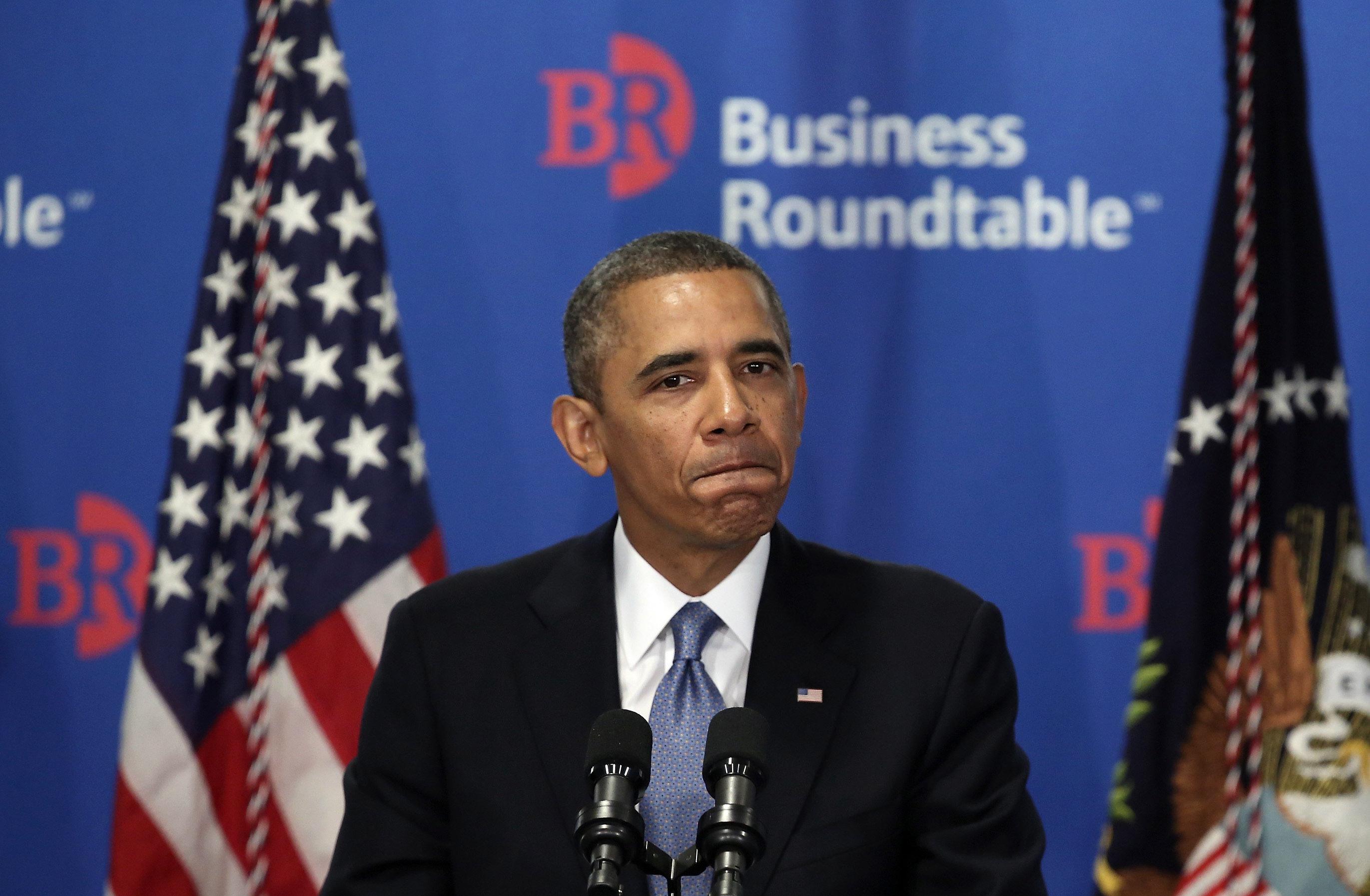The new Washington Post poll that Greg Sargent talked about Wednesday goes nice and deep on fiscal policy questions. Buried near the end are the results of rolling queries about sequestration, which have been asked by the pollster since before those automatic cuts went into effect. Look what’s happened to the opinion of “automatic across-the-board cuts” since March.
 In March, by a 14-point margin, voters disapproved of the cuts. In April and May, the margin rose to 21/22 points. The margin today? It’s shrunk to 7 points, with 43 percent of voters approving of the cuts. The fearsome cuts of sequestration are now only slightly less popular that Barack Obama himself.
And in a way that’s fair. Since sequestration went into effect—a slow process that helped hide said effects from the national media’s rada—the president has hardly talked about it. He jawed about sequestration during his August “jobs tour,” but from Aug. 7 to Sept. 15 he didn’t mention it. On Sept. 16, he attacked the cuts during his “pivot” speech, saying that “top independent economists say this has been a big drag on our recovery this year,” and blaming the impasse on Republicans. More important was what he said right before that.
In March, by a 14-point margin, voters disapproved of the cuts. In April and May, the margin rose to 21/22 points. The margin today? It’s shrunk to 7 points, with 43 percent of voters approving of the cuts. The fearsome cuts of sequestration are now only slightly less popular that Barack Obama himself.
And in a way that’s fair. Since sequestration went into effect—a slow process that helped hide said effects from the national media’s rada—the president has hardly talked about it. He jawed about sequestration during his August “jobs tour,” but from Aug. 7 to Sept. 15 he didn’t mention it. On Sept. 16, he attacked the cuts during his “pivot” speech, saying that “top independent economists say this has been a big drag on our recovery this year,” and blaming the impasse on Republicans. More important was what he said right before that.
Our deficits are now falling at the fastest rate since the end of World War II. I want to repeat that. Our deficits are going down faster than any time since before I was born. By the end of this year, we will have cut our deficits by more than half since I took office.It sounds like something Jack Lew said this week.
Because of the policies we have put in place, our deficit has fallen faster than at any point since the demobilization after World War II, and should continue to decline relative to GDP over the 10-year budget forecast. And because of the resiliency of our people, our businesses, and our economy, we are in a much stronger position today than many imagined just a few years ago. But we are not where we want to be yet. Too many Americans cannot find work.Look, if you mention deficits before employment, which of those problems sounds more important? The deficits, obviously. If you canonize lower spending, and then mention that there are some thoughtless spending cuts that are killing jobs, you’re tacitly saying that the thoughtless cuts did some good. This is a big, nagging liberal problem—literally nagging, as non-Obama Democrats are tired of hearing it.
